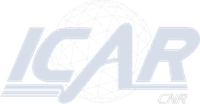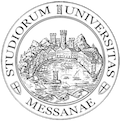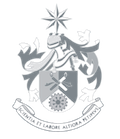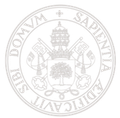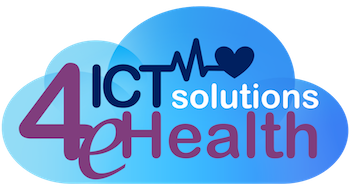
ICTS4eHealth Workshop
The first IEEE workshop on ICT Solutions for eHealth
in conjunction with the Twenty-First IEEE Symposium on Computers and Communications
Download the Workshop Program.
Messina, Italy
June 27 - 30, 2016

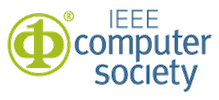

Welcome to the First IEEE Workshop on ICT Solutions for eHealth
e-Health is one of the major research topics that have been attracting cross-disciplinary research groups. The deployment of new emerging ICT technologies for Health, especially based on Cloud computing, Internet of Things (IoT), and Computational Intelligence, is attracting the interest of many researchers.
ICTS4eHealth 2016 is the first International IEEE Workshop dedicated to ICT solutions for e-Health, especially based on Cloud computing, Internet of Things (IoT), and Computational Intelligence.
The workshop will bring together researchers from academia, industry, government, and medical centers in order to present the state of the art in the emerging area of the use of cloud systems in connected health infrastructure and applications, and the use of IoT and Computational Intelligence technique in the area of eHealth.
Mission
e-Health is one of the major research topics that have been attracting cross-disciplinary research groups. The deployment of new emerging ICT technologies for Health, especially based on Cloud computing, Internet of Things (IoT), and Computational Intelligence, is attracting the interest of many researchers.
The use of Cloud computing, IoT technologies, and methods typical of Soft Computing and Computational Intelligence have been very prominent recently and can be of great help in finding good solutions to many practical healthcare applications.
For instance, health monitoring, health data storage, health data collection, mobile health, pervasive health, healthcare monitoring, telemedicine, context-aware computing, ubiquitous computing, processing health data in the cloud, securing health data in the cloud and Assistive Technology (AT) are areas of interest that are being addressed using cloud computing and IoT techniques. On the other hand, several challenging issues have raised due to the adoption of such emerging technologies. These include the quality of health data, the ability to retrieve information and use it in health context, as for example in tasks related to machine learning, knowledge discovery, decision support, regression, forecasting, optimization, feature selection, and additionally privacy and security issues of health data while being processed in the cloud, availability of health data, models of context and tele-monitoring of contextual applications.
ICTS4eHealth 2016 is the first International IEEE Workshop dedicated to ICT solutions for e-Health, especially based on Cloud computing, Internet of Things (IoT), and Computational Intelligence.
The workshop will bring together researchers from academia, industry, government, and medical centers in order to present the state of the art in the emerging area of the use of cloud systems in connected health infrastructure and applications, and the use of IoT and Computational Intelligence technique in the area of eHealth.
Technical Program Co-Chairs

Isabel de la Torre Díez
University of Valladolid
Spain
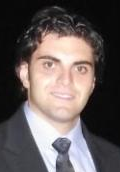
Antonio Celesti
University of Messina
Italy

Ivanoe De Falco
Institute of High Performance Computing and Networking ICAR - CNR
Italy

Giovanna Sannino
Institute of High Performance Computing and Networking ICAR - CNR
Italy

Joel J.P.C. Rodrigues
Instituto de Telecomunicações, University of Beira Interior
Portugal
Honorary Chairs
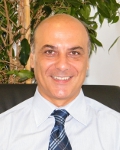
Giuseppe De Pietro
Executive Director
of the Institute of High Performance Computing and Networking
ICAR - CNR
Italy

Massimo Villari
Associate Professor
Department of Engineering
University of Messina
Italy
Topics
- Cloud computing applications for eHealth
- Internet of Things (IoT) applications for eHealth
- Assistive Technology (AT)
- Networking and Monitoring in Bio-systems
- Management and Organization of BME Environments
- Bioinformatics and Computational Biology and Medicine
- Monitoring of Vital Functions with Sensor and ICT Systems
- Biosensors and Sensor Networks
- Advanced Bio-signal Processing
- Distributed BME Applications
- Telehealth, Telecare, Telemonitoring, Telediagnostics
- e-Healthcare, m-Healthcare, x-Health
- Assisted Living
- Smartphones in BME Applications
- Social Networking, Computing and Education for Health
- Computer Aided Diagnostics
- Improved Therapeutic and Rehabilitation Methods
- Intelligent Bio-signal Interpretation
- Data and Visual Mining for Diagnostics
- Advanced Medical Visualization Techniques
- Personalized Medical Devices and Approaches
- Modelling and Computer Simulations in BME
- Human Responses in Extreme Environments
- Other Emerging Topics in BME
- e-Accessibility, web accessibility
- Hardware & Software personalized assistive technologies
- Assistive systems for users who are blind or visually impaired
- Integration between home-based assistive technologies and patient health data
- User-centered design of electronic assistive technologies
- Usability of assistive technologies
- Computer vision in AT
- User interfaces for home-based assistive technologies
- Use of prescription systems and assistive technologies
- Experience from real world assistive environment deployment
- Assistive Technologies for Urban Environments
- Healthcare modeling and simulation
- Knowledge discovery and decision support
- Biomedical data processing
- Wearable devices
- Sensor-based mHealth applications
The use of Soft Computing/Computational Intelligence methods in facing problems in the above topics is highly welcome, although by no way compulsory.
Program Committee
- Danilo Araújo, Federal University of Pernambuco - Brazil
- Marco Avvenuti, University of Pisa - Italy
- Grigorios Beligiannis, University of Patras - Greece
- Emmanuel Benoist, University of Applied Sciences Bern - Switzerland
- Stefano Cagnoni, University of Parma - Italy
- Rossana Castaldo, University of Warwick - United Kindom
- Mario Ciampi, Institute of High Performance Computing and Networking - Italy
- Salvatore Cuomo, University of Naples Federico II - Italy
- Ousmane Diallo, Assane Seck University, Ziguinchor - Senegal
- Stefka Fidanova, Institute of Information and Communication Technologies - Bulgaria
- Sebastian Fudickar, University of Oldenburg - German
- Xiaohong Gao, Middlesex University of London - United Kindom
- Paulo Roberto Gondim, Universidade de Brasilia - Brazil
- Mario Koppen, Kyushu Institute of Technology - Japan
- Kai Lin, Dalian University of Technology - P.R. China
- Xing Liu, University of Washington Tacoma - USA
- Pascal Lorenz, University of Haute Alsace - France
- Amaia Mendez Zorrilla, University of Deusto - Spain
- Davide Mulfari, University of Messina - Italy
- Dipti Patil, Pune University - India
- Alireza Sadeghian , Ryerson University - Canada
- Kashif Saleem , Center of Excellence in Information Assurance (CoEIA), King Saud University - Saudi Arabia
- Mario Sicuranza, Institute of High Performance Computing and Networking - Italy
- Bruno Silva , University of Beira Interior - Portugal
- Jan Sliwa, University of Applied Sciences Bern - Switzerland
- Francesco Tusa, University College London - United Kingdom
- Prabitha Urwyler, University of Applied Sciences Bern - Switzerland
- Bert-Jan van Beijnum, University of Twente - Netherlands
- Laura Verde, University of Naples Parthenope - Italy
- Alexey Vinel, Halmstad University - Sweden
- Shuang Wang, University of California - USA
Submission
Camera-ready Submission Instructions
The authors of the accepted papers must follow the instructions below to ensure inclusion in the final conference proceedings:
- 1. Prepare your final manuscript carefully addressing all the reviewers' comments. PLEASE NOTE: for the final camera ready ready submission all the paper should be formatted using the current IEEE conference paper template available here.
- 2. The author must ensure compliance with IEEE PDF Express by following the PDF PREPARATION INSTRUCTIONS below.
- 3. After getting the approved PDF file from PDF Express, the author must take that PDF file and upload it in EDAS as “final submission” through https://edas.info
- 4. The contact author must complete the IEEE Copyright form. Copyright form must be filled out for each paper and not per author. We do not accept paper-based copyright forms.
- 5. To be published in the IEEE ISCC 2016 Conference Proceedings and to be eligible for publication in IEEE Xplore®, an author of an accepted paper is required to register. Each paper accepted for the main conference must be registered with a Full Registration (either IEEE Member or Non - IEEE Member). Each Full registration can have a maximum of two papers associated. Notice that the Student Registration (either IEEE Member or Non - IEEE Member) is not applicable for authors. Each paper accepted for IEEE ISCC 2016 Workshops must be registered with a Workshop Registration (either IEEE Member or Non - IEEE Member). Each Workshop registration can have a maximum of two papers associated. Notice that the Student Workshop Registration (either IEEE Member or Non - IEEE Member) is not applicable for authors. We remark that the IEEE ISCC 2016 main confrerence and IEEE ISCC 2016 Workshops are co-located events that require separated registrations, so that it is not possible with only one registration (Conference or Workshop) to register both one paper for the IEEE ISCC 2016 Conference and one paper for an IEEE ISCC 2016 Workshop. In order to be included in the IEEE ISCC 2016 proceedings, each paper must be presented by an author of that paper attending the conference unless the TPC Chairs grant permission for a substitute presenter, arranged in advance of the event, and who is qualified both to present and answer questions. Non-refundable registration fees must be paid prior to uploading the final IEEE formatted, publication-ready version of the paper. For authors with multiple accepted papers, one FULL registration is valid for up to 2 papers. Accepted, registered, and presented papers will be published in the IEEE ISCC 2016 Conference Proceedings and submitted to IEEE Xplore® as well as other Abstracting and Indexing (A&I) databases.
PDF Preparation Instructions
- • Incorporate the reviews into your manuscript and prepare the camera-ready submission.
- • Avoid Asian fonts and other unsupported fonts/characters to ensure PDF compliance.
- • Proofread your manuscript to make sure that there are no typos and missing/bad characters.
- • Create an IEEE PDF Express Account by logging into http://www.pdf-express.org/. Enter the following Conference ID = 38395X and your email address and password.
- • Continue to enter information as prompted.
- • An online confirmation will be displayed and an email confirmation will be sent verifying your account setup.
- • Previous users of PDF Express need to follow the above steps, but should enter the same password that was used for previous conferences. Verify that your contact information is valid.
- • For questions about PDF Express, IEEE customer support can be contacted http://ieee.custhelp.com/app/answers/list/p/12. It might take up to 3 business days to get support through this site.
Important Dates
Submission deadline: April 1, 2016 - extended to April 20, 2016 EXPIRED
Notification of paper acceptance: May 7, 2016 - extended to May 20, 2016
Submission of camera-ready papers: May 21, 2016 extended to May 30, 2016
Maximum paper length: 6 pages (One additional optional page can be added with an additional fee)

